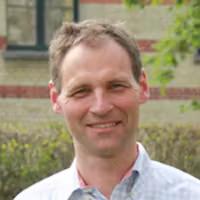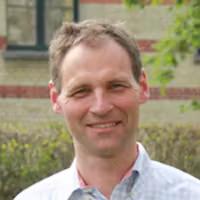Learn about urban health challenges and innovative solutions for creating sustainable, healthy cities.
Learn about urban health challenges and innovative solutions for creating sustainable, healthy cities.
This course explores the complex relationship between urbanization and health, focusing on sustainable solutions for modern cities. Led by experts from the University of Copenhagen, Universidad Politécnica de Madrid, and University of Coimbra, it covers key urban health determinants such as air pollution, noise, aging populations, and climate change. Students will learn about the history of urban planning, nature-based solutions, and innovative approaches to addressing urban health challenges. The course emphasizes interdisciplinary knowledge and provides practical tools for assessing and improving urban environments. It aims to inspire students to develop and communicate sustainable solutions for healthier cities, aligning with UN Sustainable Development Goals.
4.8
(156 ratings)
5,660 already enrolled
Instructors:
English
Português (Portugal)
What you'll learn
Understand the key determinants of urban health and their historical context
Analyze the impacts of air pollution, noise, and climate change on urban populations
Explore the challenges of aging populations and gentrification in urban settings
Learn about nature-based solutions for improving urban health and sustainability
Examine innovative approaches to urban planning that promote health and well-being
Understand how urban design can influence physical activity and chronic disease prevention
Skills you'll gain
This course includes:
3.7 Hours PreRecorded video
14 quizzes
Access on Mobile, Tablet, Desktop
FullTime access
Shareable certificate
Closed caption
Get a Completion Certificate
Share your certificate with prospective employers and your professional network on LinkedIn.
Created by
Provided by

Top companies offer this course to their employees
Top companies provide this course to enhance their employees' skills, ensuring they excel in handling complex projects and drive organizational success.





There are 5 modules in this course
This course provides a comprehensive exploration of urbanization and health, focusing on promoting sustainable solutions for modern cities. It begins by examining the key determinants of urban health, including historical trends in urban planning and current challenges such as air pollution and noise. The course then delves into specific urban health issues, such as aging populations and gentrification, and their impacts on community well-being. A significant portion of the curriculum is dedicated to nature-based solutions, exploring how green and blue spaces can improve health outcomes and mitigate climate change effects in urban environments. The course also covers innovative approaches to urban health challenges, including strategies to meet UN Sustainable Development Goals and address issues like urban diabetes. Throughout the modules, students are exposed to real-world examples and case studies from various cities, primarily in Europe but also globally. The final module focuses on innovation and communication, equipping students with tools to develop and effectively present their own sustainable urban health solutions.
How Urbanisation, Health and Urban Planning Relate
Module 1 · 5 Hours to complete
Ageing and Gentrification
Module 2 · 6 Hours to complete
Nature-based Solutions
Module 3 · 7 Hours to complete
Innovative Solutions
Module 4 · 4 Hours to complete
Innovation and Communication
Module 5 · 3 Hours to complete
Fee Structure
Payment options
Financial Aid
Instructors
Expert in Global Health and Cardio-Metabolic Diseases
Dirk Lund Christensen is an Associate Professor in Global Health at the Global Health Section of the Department of Public Health at the University of Copenhagen. He holds an MSc in Human Physiology and a PhD in Clinical Epidemiology, both from the University of Copenhagen/Steno Diabetes Center. His research primarily focuses on cardio-metabolic diseases such as diabetes, hypertension, cardiomyopathy, and obesity, examining various populations worldwide. Christensen has published extensively on these topics, utilizing objectively measured physical activity data from studies in Africa, India, and Mexico, often in collaboration with the MRC in Cambridge, UK. He is currently the principal investigator for studies in Tanzania and Mexico.
Leader in Global Environmental Health Research
Flemming Konradsen is a professor of international environmental health at the University of Copenhagen and the director of the Copenhagen School of Global Health. With over twenty years of experience in environmental and global health, his research focuses on critical areas such as water supply, sanitation, hygiene, acute pesticide poisoning, and vector-borne disease control across Asia, Africa, and Europe. His methodologies encompass epidemiology, qualitative studies, health promotion, and health systems analysis. Additionally, he plays a significant role in building research capacity in universities throughout Asia and Africa and has collaborated with various international organizations and NGOs.
Testimonials
Testimonials and success stories are a testament to the quality of this program and its impact on your career and learning journey. Be the first to help others make an informed decision by sharing your review of the course.
Frequently asked questions
Below are some of the most commonly asked questions about this course. We aim to provide clear and concise answers to help you better understand the course content, structure, and any other relevant information. If you have any additional questions or if your question is not listed here, please don't hesitate to reach out to our support team for further assistance.





